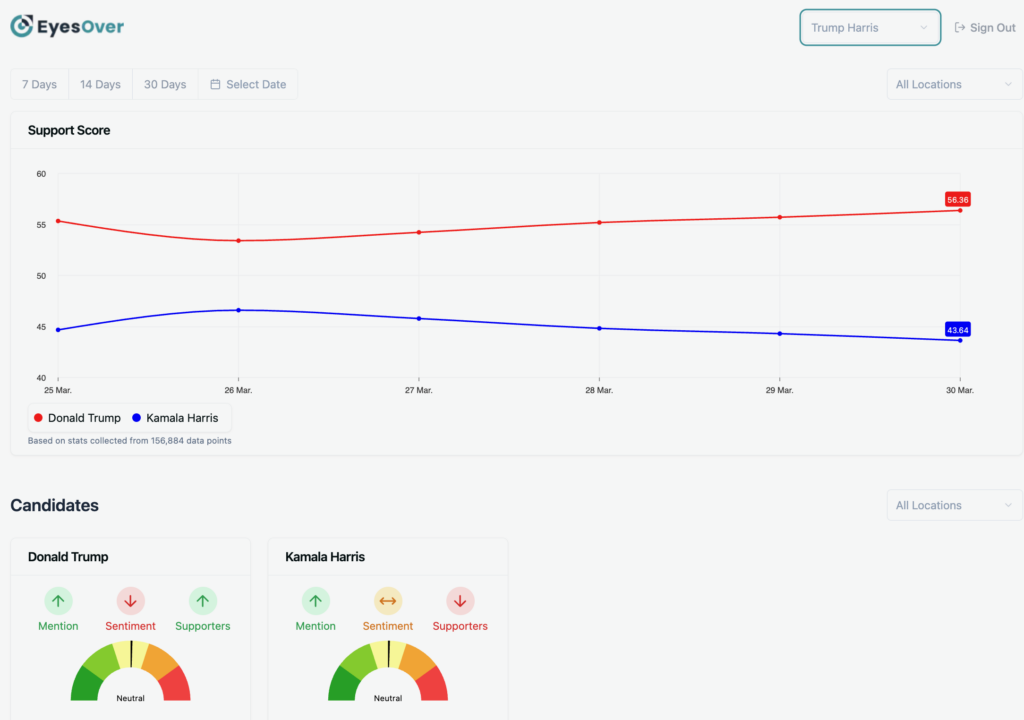Poll: Majority of Americans Prioritize Energy Independence Over Climate Change

A new national poll conducted by Scott Rasmussen for Napolitan News Service finds that most Americans continue to prioritize domestic energy production over aggressive climate change measures. In the survey of 1,000 registered voters, conducted March 18–19, 2025, by RMG Research, Inc., 57% said achieving American energy independence is more important than fighting climate change, while 39% said the opposite. The poll carries a margin of error of ±3.1 percentage points.
This trend has held steady over recent years. In similar polling from October 2024, 58% favored energy independence compared to 32% prioritizing climate efforts. The gap was narrower in January 2023, with a margin of 11 percentage points between the two views.
Partisan divides remain sharp: 65% of Democrats say climate change is the more pressing concern, while only 14% of Republicans agree. Republican voters overwhelmingly favor energy independence as a top priority, with many independents leaning in the same direction. These findings reflect what has become a growing sentiment among voters that economic stability and reliable domestic energy are more immediate needs than longer-term climate strategies.
The survey also explored broader environmental concerns. When asked whether providing clean air and water or preventing climate change was more important, 68% chose clean air and water, suggesting that while voters may not always support sweeping climate legislation, they still place high value on tangible environmental outcomes. Other results showed similar patterns: 50% said keeping cars affordable was more important than reducing greenhouse gas emissions, and 59% said lowering the cost and improving the reliability of electricity and gas was more important than climate mitigation.
Yet, this pragmatic outlook is not without its critics. Environmental advocates and climate scientists have expressed concern that prioritizing short-term economic interests over long-term climate action may be a costly mistake. They argue that rising global temperatures, more frequent natural disasters, and ecosystem disruptions pose risks that will far outweigh today’s energy or cost-of-living challenges.
From this perspective, the pursuit of energy independence need not conflict with climate goals. Many experts and advocates support expanding renewable energy sources—such as wind, solar, hydroelectric, and nuclear—arguing that clean energy investments can simultaneously reduce emissions, boost domestic energy security, and drive economic growth. They caution that failing to act boldly on climate change now may leave future generations burdened with the financial and environmental consequences of inaction.
Critics of the majority sentiment also point to the global leadership role the U.S. plays, warning that a retreat from climate commitments could diminish America’s influence on international environmental policy and innovation. Furthermore, they argue that the false choice between affordability and sustainability ignores how clean energy technologies have become increasingly competitive and accessible.
Despite those concerns, the polling suggests Americans are still weighing environmental protection through the lens of affordability and practical impact. The majority of voters appear to support clean air, reliable infrastructure, and domestic energy resources—but are wary of climate policies that may increase costs or limit personal choices.
As policymakers navigate energy and environmental legislation, these findings underscore the need for solutions that balance economic realism with environmental responsibility. The public appears open to cleaner and more efficient energy systems—but wants that transition to happen in a way that supports, rather than disrupts, American households and industries.
The poll was commissioned by Napolitan News Service as part of its ongoing opinion research for Gold Circle Members. The sample was weighted by demographic variables including geography, gender, race, education, and political affiliation to reflect the national population of registered voters.
RECENT










BE THE FIRST TO KNOW
More Content By
Think American News Staff










